IIIT Hyderabad’s newly launched Human Sciences Research Centre led by economist Dr. Anirban Dasgupta wants to understand the socio-cultural ramifications of new technology on Indian lives and livelihoods that constitute the DNA of the country. Read on.
In late 2022, development economist Dr. Anirban Dasgupta joined IIIT Hyderabad’s newly created Human Sciences Research Centre (HSRC), thereby reviving the age-old conversation on technology and its relationship with development in India. His research areas are in development economics and political economy, with special focus on agriculture that still remains India’s major employment provider.
“The first thing is to dispel the myth that when economic growth happens, everybody gains equally”, remarks the Head of the inter-disciplinary center. “My primary interest as an economist is in understanding how an economy functions and generates growth and the implications of game-changers like technology for diverse population groups”.
IIIT Hyderabad now offers an interesting dual degree B. Tech in computer science with M.S in Human sciences and the first batch is scheduled to graduate next year.
How the global economist joined the technology Institute
“I have been trained in economics throughout my student life”, observes Anirban who completed his B.Sc. Honors and M.Sc. in Economics from Kolkata’s renowned Presidency College before moving to Riverside for his Ph. D from the University of California.
“It was a privilege that my first job was as a lecturer at the Institute of Social Studies (ISS) in The Hague, an independent international institute under the Dutch ministry of foreign affairs”, he reminisces. After an eventful five-year stint, he returned to India to take up an exciting position as founding member of the Faculty of Economics in the newly launched South Asian University (SAU), with students and faculty drawn from all SAARC nations. Anirban looks back at those days as a successful tenure, even standing in as Associate Dean for a short duration.
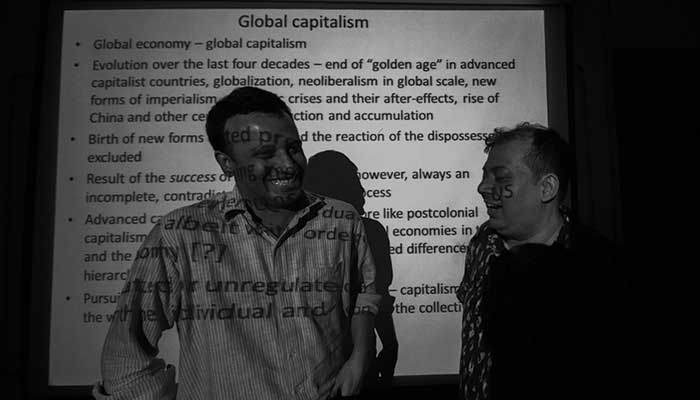
He concurrently worked with the International Labor Organisation (ILO) on 2 different research projects on Afghanistan. Around the time that his report on agriculture and employment in Afghanistan was due for release in Kabul, the Taliban came to power and put the publication on hold since the ILO doesn’t recognize the new government. Apart from his work for IFPRI (International Food Policy Research Institute), he was the principal researcher for a project on solid waste management with extensive fieldwork in 3 cities for the Indian Council of Social Science Research.
The prolific author has published several papers on India’s agrarian policies and farm laws, growth and development economics, land reforms in West Bengal and Kerala, trade liberalization and Indian agriculture, land use patterns in China and Bolivia, agrarian transformation in Bihar, peasant production and new rurality trends in India. A memorable conference was one that he co-organized in Amherst, Massachusetts in honor of his Ph. D supervisor Azizur Rahman Khan.
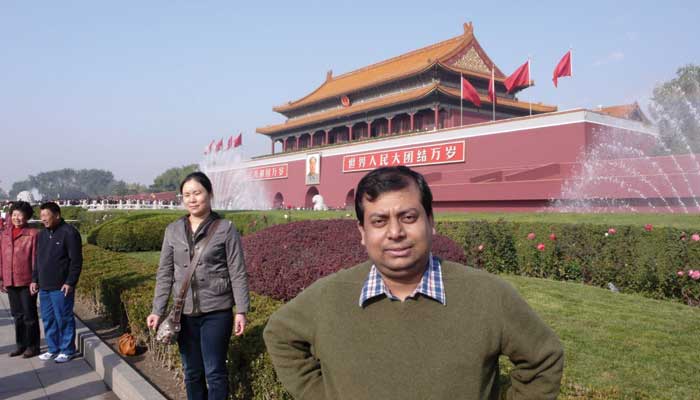
Around the pandemic era, he felt the need to explore new academic spaces. Providentially, IIIT Hyderabad came referred as an Institute that was working on an interesting confluence between traditional computer science education and the social sciences. “This dovetailed well with the way I do economics which is inherently interdisciplinary in nature and I joined in mid-December 2022”, he remarks. The HSRC now has a sizeable faculty with expertise in economics, political science, sociology, history, philosophy, literature, cultural and film studies along with science and technology studies.
Test driving the new Boards channel of admission
For the first time, HSRC is experimenting with a new route of admission into the dual degree program via the Boards channel, where applicants are not required to apply through the traditional common entrance exam. Instead, the Boards channel of entry is for students with a mathematics background who have taken social science subjects at the plus 2 level. “I see our dual degree program becoming a very exciting platform where we will have strong mathematically trained students from the humanities coming into the engineering stream. The first batch commences at the end of July itself”.
Along with the Computer Sciences (CS) or Electronics and Communications Engineering (ECE) curriculum, students will take up equal number of credits in human sciences. The Center also offers a whole range of courses to fulfil requirements in humanities credits for all B. Tech students.
What makes the astute economist tick
Anirban’s love for economics evolved in distinct milieus- in global classrooms at Riverside, California, in the ISS, The Hague teaching Masters’ students from up to 60 countries and in South Asian University, Delhi mentoring MA and Ph. D students from across South Asia. The other was “in free-wheeling discussions by imposing on friends and family with long phone calls. Thankfully, there are enough people who still humor me and take my calls”, he smiles. “The most important thing that sparks joy in me, is conversing with colleagues and students and sharing ideas”.
His fondest memories were in the beautifully laid out city of Hague and the captivating walks home, crossing over a little bridge and through a forested area. “It just felt surreal but somewhere I did yearn to get back to the chaos. I left at a time when I felt that if I waited longer, it might have become too difficult to move back to India”. The global economist today enjoys the relative peace and quiet of campus life in Hyderabad.
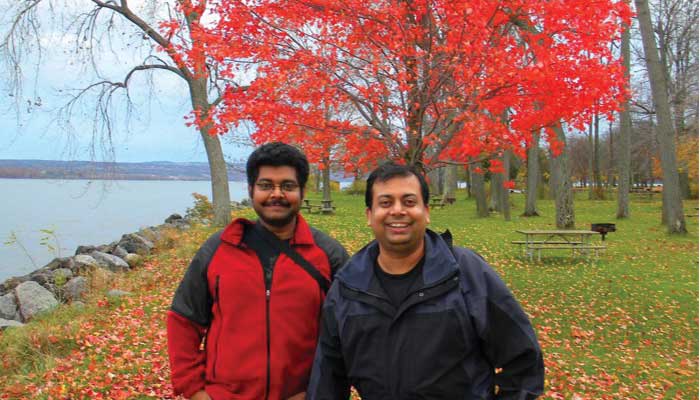
Born and raised in Kolkata, Anirban’s father was an IIT-trained engineer who worked with Dunlop tires. Anirban completed his schooling from the famous South Point High School. During his MA days, he caught the attention of lecturers for his deep engagement in the subject. “To tell you the truth, I was not at all sure that I wanted to go abroad to do my Ph. D! I was quite happy in Kolkata”, says the scholar who didn’t attend the final interview for becoming a management trainee in a large corporate once he found his calling in academics.
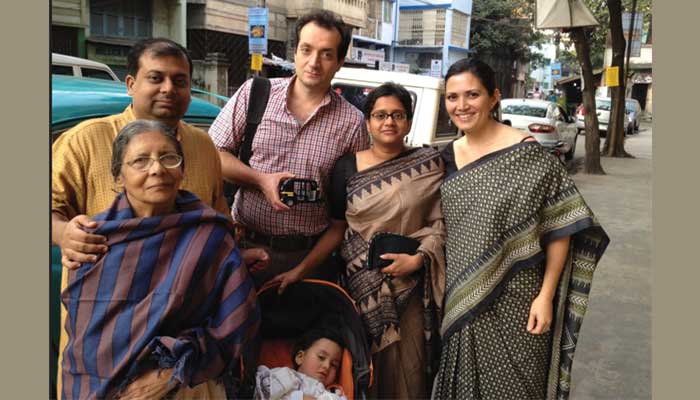
His university professors pushed him to pursue his Ph. D in UC Riverside. “For me, it was a big deal to be singled out of a group of roughly 180 students. They chose me not because I was in the top 5 in terms of grades but because of my academic interactions outside the classroom. It was this intellectual banter mostly outside classes with teachers and now with students which has really made me what I am today”, he points out.
Right from his school days, Anirban always had inspiring mentors, whether it was introducing him to the world of literature and music, ranging from Urdu poetry to western classical music. “Books are my passion and everywhere I go, I find my way to a bookshop”, says Anirban who loves the work of recently deceased author Milan Kundera. He is partial to new English literature coming out of South Asia – especially Pakistani and Bangladeshi authors writing about “circumstances that are similar to ours in many ways”.
“My music choices are quite eclectic and jump across genres from Hindustani to Western classical, Bengali to Hindi to Spanish and everything in between. Though traveling has become constrained in the post-pandemic days, Europe is still a favorite destination for the professor and his partner, Somjita Laha who is also an academic. They both love food and travel and “I often choose conferences, based on how good the cuisine is in these locations”, he says tongue-in-cheek.
A kaleidoscopic view of possibilities
IIIT Hyderabad recently organized a panel discussion on New Technology and the Future of Work at an international conference in New Delhi. “Being a leading institution in research in digital technology, IIITH is suitably placed to take up the task of applying computational technology to dealing with social problems by analyzing data faster and introducing novel methods. Equally important is to understand how various components of digital technology is impacting our economy and society. Most of our work is inherently applied in nature and will be well accepted by the industry, think tanks and international organizations who would require this kind of expertise at the intersection of technology and society”, he prophesizes.
Anirban and his colleagues will be organizing a 5-day workshop and winter school on Technology and Society, that he foresees as a dry run for a full-fledged Master’s program. “That is how I really see our group coming together in contributing to being a vibrant Center or Faculty Group within this institute”. Having taught Masters and Ph. D level humanities scholars for over a decade and a half, he is now looking forward to whipping up excitement for the subject amongst undergraduate students with a technical bent of mind.
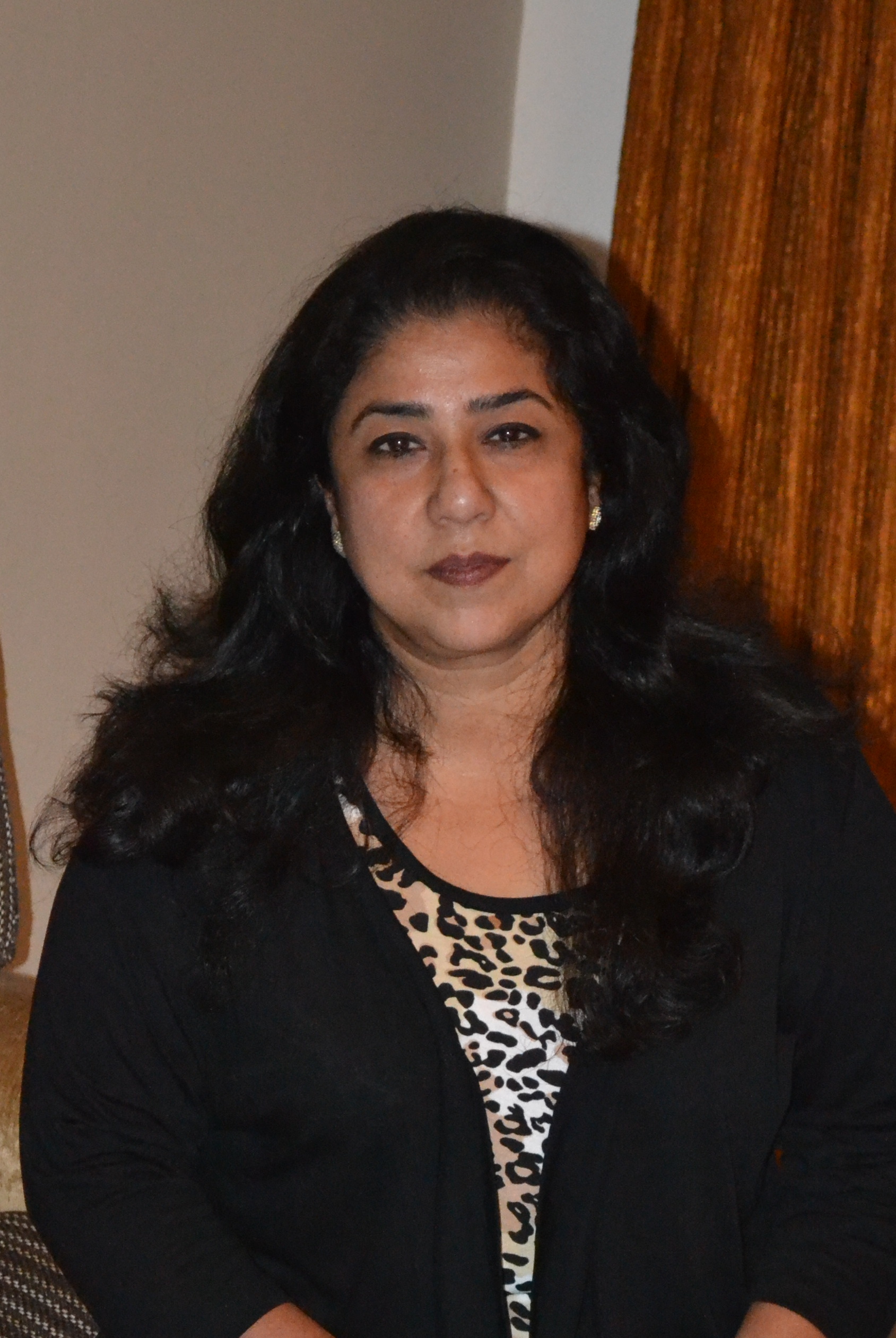

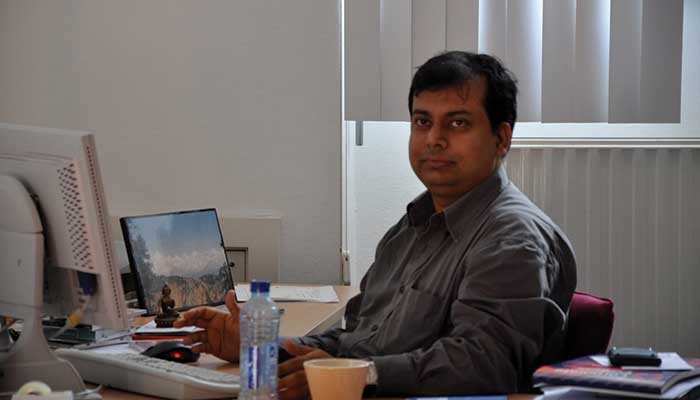
Next post